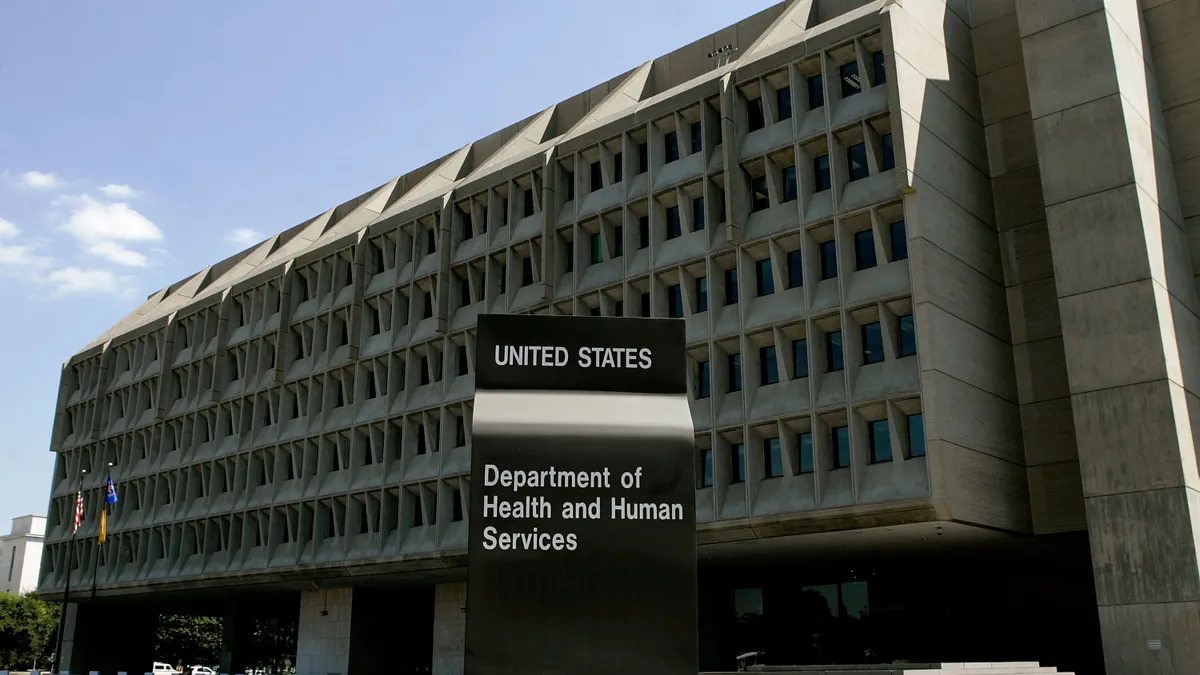Dive Brief:
- The Department of Health and Human Services inspector general's office has ruled a physician-owned medical device company poses a low enough risk of fraud and abuse under the federal Anti-Kickback Statute to avoid sanctions.
- The Office of Inspector General published a special fraud alert on physician-owned entities in 2013 but, in the case of the upper extremity surgical company covered by its new ruling, concluded that factors such as the limited reliance on revenues from the physician owners reduce the risk of fraud and abuse.
- Law firm Ropes & Gray hailed the opinion as potentially benefiting medical device innovators that have been shut out of hospitals because they have physician owners, while cautioning that the ruling only applies to the reviewed company and confirms the core tenets of the fraud alert.
Dive Insight:
The fraud alert warned that some attributes and practices of physician-owned distributorships (PODs) “produce substantial fraud and abuse risk and pose dangers to patient safety.” Nine years after releasing the POD alert, OIG said it has, for the first time, applied the principles set out in the 2013 notice to a specific company. The unnamed company asked OIG for an advisory opinion on its arrangement.
A hand and upper extremity surgeon formed the company to sell his inventions. The founder’s spouse and daughter, who are both physicians too, are involved with the organization. All three physicians order products from the company.
However, the orders made up less than 1% of total revenues from 2019 to 2021. Apart from an uptick in 2021, which the physicians see as a blip, the share of sales originating at the three physicians has fallen steadily over the past seven years as the company has expanded domestically and internationally. The company employs “dozens of individuals.”
OIG cited the size of the company as evidence that reduces “the risk that it serves only as a shell entity.”
The office also considered the limited importance of sales from the three physicians to the business and the fact that, while the physicians may recommend company products, they “will not otherwise attempt to influence” hospitals and ambulatory surgery centers (ASCs) to buy the devices.
After considering those factors and other features that mitigate risk, OIG concluded that “although the arrangement would generate prohibited remuneration under the federal Anti-Kickback Statute if the requisite intent were present,” it will not impose administrative sanctions on the company.
Ropes & Gray, the law firm that represented the physicians in the advisory opinion process, set out the implications of the decision.
“The decision should be good news for some manufacturers of innovator medical devices — specifically, companies in which physician-inventors have received ownership interests in exchange for their product development contributions, but whose orders represent only a limited proportion of the companies’ sales — and the health systems, hospitals and ASCs who are the potential customers,” the law firm wrote.
That conclusion comes with caveats. The OIG opinion is only formally applicable to the three physicians, although Ropes & Gray contends the analysis may open doors for similar organizations, and it does nothing to change the central message of the fraud alert.
As such, the firm said the opinion gives “no comfort for medical device sellers who are merely distributors, or even for purported manufacturers whose business model is to sell substantially on the orders of their physician-owners."










